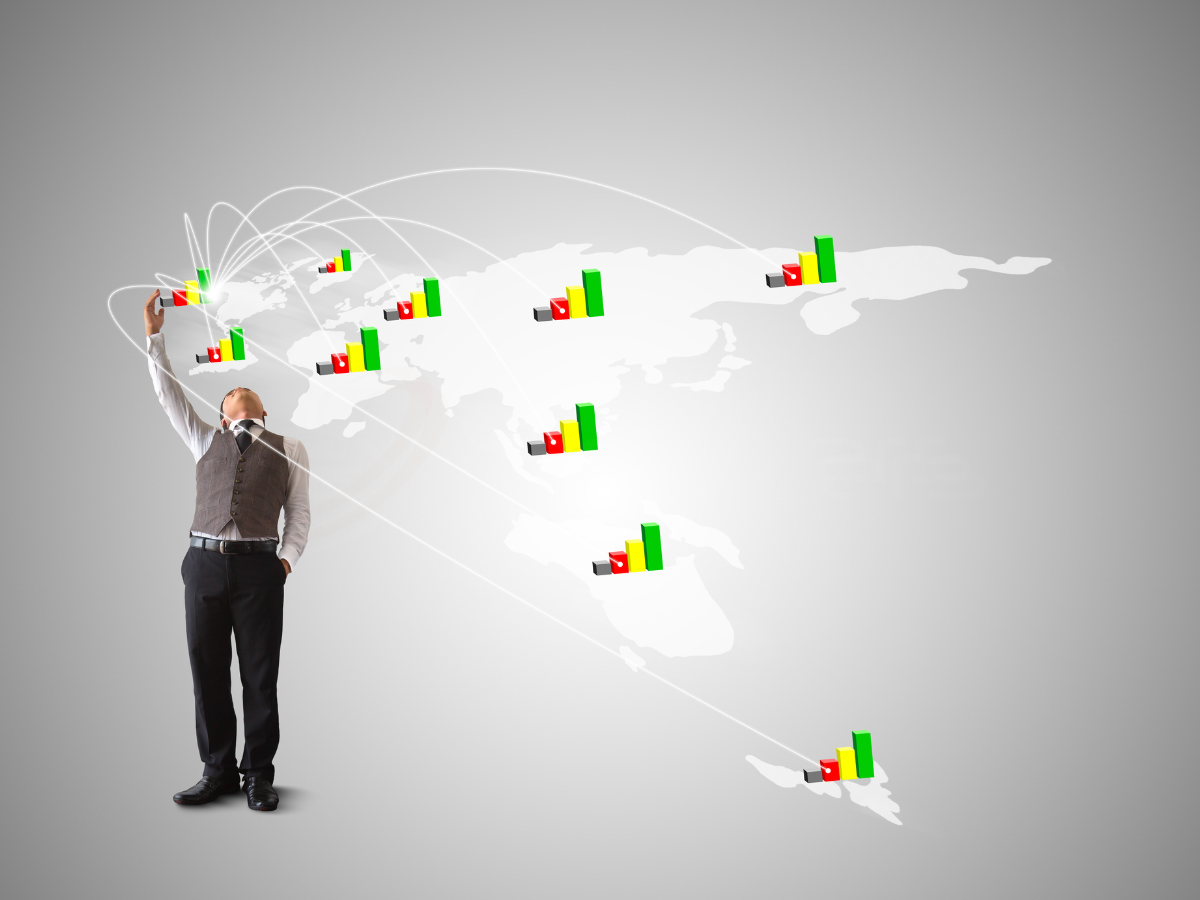Introduction
Over the past decade, the United Arab Emirates (UAE) has become one of the world’s most attractive destinations for international business. With its robust infrastructure, investor-friendly environment, and strategic location connecting Asia, Africa, and Europe, it serves as the gateway to the MENA (Middle East and North Africa) region.
According to the World Bank’s Ease of Doing Business Index, the UAE ranks among the top 20 economies globally for ease of business setup, while Dubai alone attracts over $12 billion in foreign direct investment (FDI) annually. For businesses planning to expand internationally to the UAE presents a powerful entry point.
However, entering new markets involves navigating unfamiliar regulations, cultural nuances, and competitive environments. That’s where a Global Expansion Advisor becomes crucial helping you develop a data-driven international expansion strategy tailored to UAE market conditions.
Why the UAE Is the Perfect Launchpad for Global Expansion
The UAE’s economy continues to diversify beyond oil, investing heavily in trade, logistics, technology, healthcare, and renewable energy. As of 2025:
- Non-oil sectors account for over 70% of the UAE’s GDP.
- Free trade zones like JAFZA, DMCC, and DIFC offer 100% foreign ownership, tax incentives, and simplified licensing.
- The UAE-India CEPA (Comprehensive Economic Partnership Agreement) has already boosted bilateral trade to $85 billion, paving the way for Indian and international firms to expand easily.
- According to EY (Ernst & Young), the MENA region witnessed $69.1 billion in M&A deals in 2025, with the UAE leading cross-border activity proof of its openness to foreign investors.
For any business aiming to expand globally to MENA, the UAE offers an ideal launchpad due to its regulatory flexibility, modern infrastructure, and investor protection frameworks.

The Role of a Global Expansion Advisor
A Global Expansion Advisor bridges the gap between vision and execution. Their expertise goes beyond basic consultancy, they design a comprehensive market entry roadmap covering feasibility studies, market research, compliance, localization, and partnership development.
Key Responsibilities of a Global Expansion Advisor
- Market Opportunity Analysis
Advisors analyze the UAE markets to identify high-growth sectors. For instance, industries like renewable energy, fintech, real estate, logistics, and hospitality are booming due to UAE’s Vision 2031 diversification plan. - Business Setup & Licensing Guidance
Each Emirate and Free Zone has unique licensing requirements. A global expansion advisor helps you:
- Choose the right business structure (LLC, Free Zone Entity, or Offshore Company).
- Secure trade licenses through authorities like DED, DMCC, or RAKEZ.
- Manage documentation for bank accounts, VAT registration, and residency visas.
- Choose the right business structure (LLC, Free Zone Entity, or Offshore Company).
- Legal & Regulatory Compliance
Compliance is critical in cross-border operations. Advisors ensure adherence to UAE Commercial Companies Law, foreign ownership regulations, tax codes, and customs requirements.
They also assist in understanding double taxation treaties and import-export laws for trading businesses. - Localization Strategy
Advisors guide you on localizing your brand adapting language, design, and pricing for the UAE audience. For instance, consumer behavior in Dubai or Abu Dhabi differs from that in Saudi Arabia or Kuwait. Localization builds trust and accelerates market acceptance. - Building a Sales and Partner Network
Expanding in the UAE often requires local partnerships. Advisors connect you with authorized distributors, agents, or strategic allies to help your brand scale quickly. - Ongoing Strategic Oversight
Global expansion doesn’t end with setup. Advisors monitor performance metrics, market shifts, and regulatory updates to ensure your expansion continues to thrive.
Crafting an Effective International Expansion Strategy for the UAE
To succeed in international markets like the UAE, businesses need a clear, data-backed expansion plan. A professional advisor helps structure this into actionable stages:
|
Step |
Strategic Focus |
Outcome |
|---|---|---|
|
1. Market Feasibility Study |
Assess demand, competitor landscape, regulations, and entry barriers. |
Data-driven entry decisions. |
|
2. Business Model Adaptation |
Tailor pricing, product mix, and branding for Gulf consumers. |
Better cultural fit and faster traction. |
|
3. Selecting Entry Mode |
Options include export, joint venture, franchising, or establishing a Free Zone Entity. |
Optimized risk-reward balance. |
|
4. Financial & Tax Planning |
Utilize UAE’s 0% personal tax and 9% corporate tax regime efficiently. |
Higher profitability and compliance. |
|
5. Operations & Supply Chain Setup |
Choose logistics hubs (Dubai Logistics City, JAFZA). |
Efficient delivery across GCC. |
|
6. Team & Talent Hiring |
Recruit local workforce and expats under UAE labor laws. |
Strong operational base. |
|
7. Sales & Marketing Launch |
Leverage digital marketing, influencer networks, and Arabic content. |
Market visibility and brand loyalty. |

Expanding Your Business Globally to MENA: The UAE Advantage
The MENA region, led by the UAE, is experiencing a rapid business transformation:
- FDI inflows to the UAE reached $23 billion in 2024 (UNCTAD).
- Dubai International Chamber aims to attract 300+ global companies to expand into the Emirate by 2030.
- The Dubai Economic Agenda (D33) targets doubling the economy’s size by 2033, providing immense opportunities for global firms.
- Saudi Vision 2030 and Qatar National Vision 2030 create cross-border trade opportunities for UAE-based companies.
By setting up in the UAE, businesses can easily access 1.5 billion consumers across MENA, Africa, and South Asia through UAE’s logistics networks including Jebel Ali Port and Dubai International Airport, two of the world’s busiest trade hubs.
How to Expand Your Business Internationally to the Gulf: Step-by-Step
- Partner with a Global Expansion Advisor
They identify Gulf markets aligned with your business type (UAE for logistics, Saudi Arabia for retail, Qatar for energy, Bahrain for finance). - Choose the Right Entry Mode
- Free Zone Setup – 100% ownership, no import/export taxes, easy repatriation.
- Mainland Company – For local trading and government contracts.
- Joint Venture – Partner with a local investor for faster brand entry.
- Free Zone Setup – 100% ownership, no import/export taxes, easy repatriation.
- Understand Licensing Regulations
Each Gulf nation has distinct rules e.g., UAE allows 100% foreign ownership in most sectors, while Saudi Arabia may require partial local ownership. - Cultural and Language Adaptation
Arabic localization and cultural sensitivity matter. Global brands like Lulu Group and IKEA succeeded in the Gulf by adapting store experiences and product lines to local tastes. - Leverage Free Trade Agreements
Use agreements like UAE–India CEPA or GCC-Singapore FTA for lower tariffs and better supply chain economics. - Focus on Digital Expansion
The Gulf has one of the highest internet penetrations (UAE: 99%), and e-commerce is expected to reach $50 billion by 2026 (Statista).
Investing in digital transformation ensures scalable growth. - Monitor and Scale
Track performance KPIs such as market share, revenue per region, and ROI. Use local data to adjust strategy continuously.
Case Study: How an Indian Tech Brand Expanded into the UAE
An Indian SaaS company specializing in business automation partnered with a global expansion advisor in Dubai to enter the GCC market.
Approach:
- Conducted market research on SMEs in UAE’s technology sector.
- Registered a Free Zone entity in DMCC within 3 weeks.
- Partnered with local resellers to provide Arabic-language customer support.
- Leveraged digital marketing tailored for Dubai and Abu Dhabi’s growing SME base.
Result:
The company achieved a 40% increase in regional sales within the first year and later expanded to Saudi Arabia and Kuwait.
Conclusion
The UAE continues to solidify its position as the business hub of the Gulf, attracting companies from India, Europe, and North America looking to tap into the growing MENA market. Expanding internationally is no longer just about ambition, it’s about having a strategic framework backed by expert insight.
By working with a Global Expansion Advisor and building a tailored international expansion strategy, you can confidently expand your business globally to the UAE and the Gulf, minimize risks, and accelerate growth in one of the world’s most promising regions.
Frequently Asked Questions
Why do I need a Global Expansion Advisor for the UAE?
Because regulations, tax structures, and cultural expectations differ from other regions. An advisor ensures compliance, risk reduction, and faster market entry.
What is the cost of business setup in the UAE?
Depending on the location and structure, costs range from AED 15,000 to AED 50,000, excluding visa and office fees. Free zones often provide cost-effective packages for startups.
Which sectors in the UAE offer the best expansion potential?
Fintech, renewable energy, healthtech, logistics, F&B, and digital services are top growth sectors under UAE Vision 2031.
Can I operate across the GCC if I set up in the UAE?
Yes. UAE’s strategic trade position and agreements allow easy access to GCC, Africa, and South Asia through regional partnerships and logistics networks.





